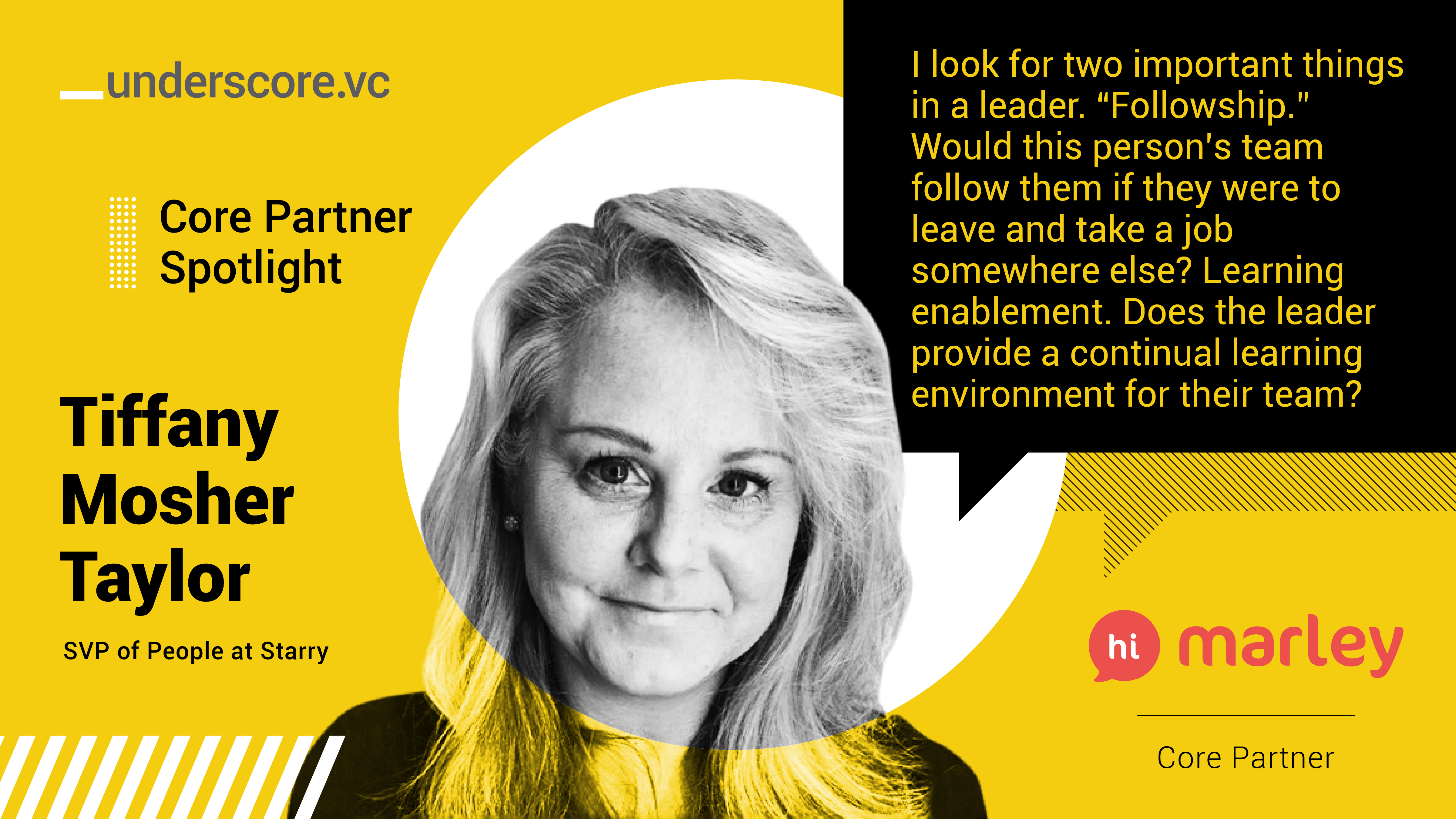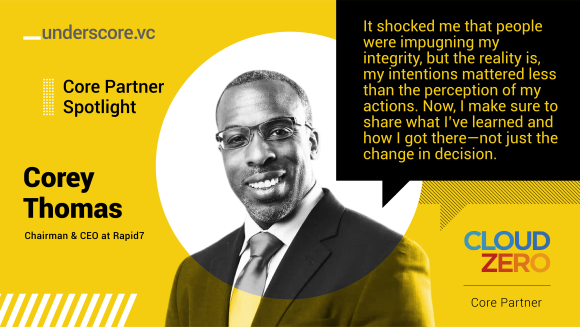At Underscore VC, we believe it takes a community to build an enduring, iconic company. That’s where the Underscore Core and our Core Partners come in. In this series, we’re featuring a handful of our Core Partners, sharing their insights, and describing their impact. Read on to learn more.
As a People exec with decades of experience, Tiffany Mosher Taylor, SVP of People at Starry, knows a thing or two about leadership. “A leader’s job is to inspire, motivate, and create purpose for their team,” she says.
That mindset has made her a wonderful mentor and Core Partner to Underscore portfolio company Hi Marley. “Working with Tiffany was one of the brightest spots in 2020 (and she’s not getting rid of me in 2021!),” says Stefanie Bishop, Head of People at Hi Marley.
“She provides guidance, support, and is a wonderful sounding board. Each time we connect, we share a good laugh or cry. Fortunately, it’s mostly laughter, but either way, it feels great to know that we can be authentic with each other—no matter the topic.”
What’s a Core Partner? Core Partners work closely with Underscore VC to help source investment opportunities and/or advise portfolio companies. In return, Core Partners receive “Core Allocations,” a portion of Underscore’s returns on the company via an interest grant in our Core Fund. That means incentives are aligned for productive relationships—at zero cost to our founders.
These partners are tremendously valuable. In this brief Q&A, Tiffany shares insights from her experience building teams and strengthening company culture. You can also hear from Tiffany and Stefanie in the video below, in which they share their experience with the Core Partner program.
On Managing Ambiguity
Q: What’s something you’ve learned about managing ambiguity?
A: To effectively manage ambiguity, you must be comfortable with change, shift gears easily, act without having the full picture, and handle risk as best you can.
- Just make a decision! You won’t always have all of the information. Make the best decision you can with the information you have. Taking calculated risks helps keep businesses moving.
- If you manage a team, be empathetic. Ambiguity can be challenging. If you can’t provide clarity, validate your team’s concerns. A simple “I understand that a lack of clarity can be frustrating” goes a long way and can squash any building resentment.
- Roleplay the worst-case scenario. These exercises help people think on their feet and get used to making decisions with the available information. They can also help you feel prepared for the worst, which provides a degree of comfort.
- Be clear and concise once a decision is made. Communicate expectations around the next steps and make sure everyone understands what they’ve been asked to do. As a leader, you can reduce ambiguity in your team’s work by providing as much detail as possible.
Creating a Strong Startup Culture
Q: What’s one thing founders can do to create a strong startup culture?
A: Factor corporate values into your performance management process. That includes rewarding and recognizing employees for what they do and how they do it.
Does the employee accomplish their work in a way that meets, exceeds, or doesn’t meet expectations for each corporate value? This systematic approach reinforces and aligns your value system across the company, which helps preserve company culture.
To Lead = To Inspire, Motivate & Create Purpose
Q: What’s one important thing you’ve learned about leadership?
A: A leader’s job is to inspire, motivate, and create purpose for their team. I look for two important things in a leader. “Followship.” Would this person’s team follow them if they were to leave and take a job somewhere else? Learning enablement. Does the leader provide a continual learning environment for their team?
A Highlight as a Core Partner
Q: Can you share a highlight from working with Hi Marley?
A: I support Stefanie Bishop, Head of People, at Hi Marley, and she is just so much fun to work with. We’ve never met in person thanks to Covid, but each week we jump on a Zoom call to talk through all things people strategy—and how to best balance work and life (we are both moms of two!).
Currently, our hot topic is how to create an annual merit/promotion process that’s scalable, repeatable, within budget, and motivating to employees and managers.









